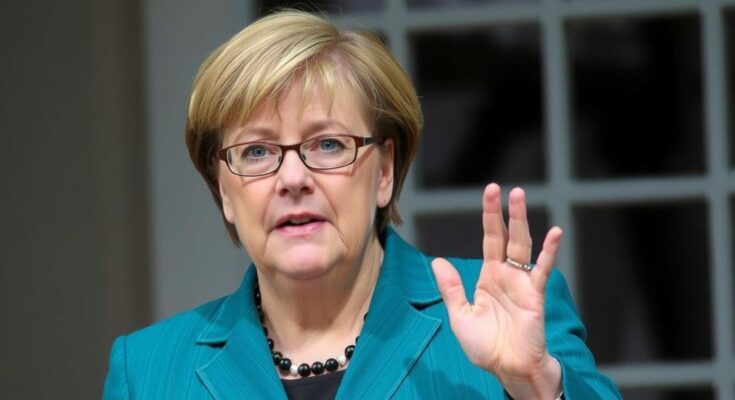German President Frank-Walter Steinmeier has dissolved parliament, setting a date for elections on February 23, following the collapse of Chancellor Olaf Scholz’s coalition government. Security issues have intensified debates on immigration and public safety after a tragic attack at a Christmas market, influencing voter sentiment. The CDU/CSU coalition leads polls, while the SPD struggles with low support. Steinmeier calls for respectful conduct during the campaign, warning against hatred and foreign influence in the electoral process.
On Friday, February 23, German President Frank-Walter Steinmeier officially dissolved parliament, paving the way for an early general election following the collapse of Chancellor Olaf Scholz’s government last month. This dissolution occurred amidst significant challenges for the nation, including internal conflicts regarding economic revitalization and heightened security concerns following a recent tragic incident at a Christmas market that claimed five lives and injured over 200 individuals.
The call for early elections arises as President Steinmeier emphasized the necessity for political stability, urging all political actors to engage in the electoral process with “respect and decency.” The internal disarray within Scholz’s coalition was further exacerbated by the deadly car-ramming attack in Magdeburg, leading to a rekindling of debates surrounding immigration and security policies. Following the incident, Scholz appealed to the nation to unite against hatred.
In light of the upcoming election, the polls indicate that the conservative CDU/CSU alliance is leading with approximately 32 percent support, while the far-right Alternative for Germany (AfD) trails with 19 percent. The Social Democrats, led by Scholz, find themselves significantly behind with only 15 percent. The political climate has been poised for a rightward shift in response to ongoing discussions about immigration, economic stability, and national security in the wake of recent events.
The backdrop to this parliamentary dissolution includes the instability of Olaf Scholz’s governing coalition, which was previously composed of three parties but succumbed to internal strife over strategies to rejuvenate Germany’s economy. The complexities of political interactions have been intensified by external pressures such as global conflicts and a recent attack that has spurred debates on immigration and national security. The forthcoming election represents a critical juncture for Germany, providing political parties with an opportunity to articulate clear platforms amidst widespread public concern.
As Germany approaches the February 23 elections, the political landscape is tense and dynamic, marked by the challenges of economic revitalization, security concerns, and immigration policy debates. The dissolution of parliament reflects a significant shift in the political arena, indicating a strong need for stability and responsible campaigning. Moreover, the current polling suggests potential shifts in public support, raising important questions about the future direction of German governance and policy.
Original Source: www.cbs19news.com




